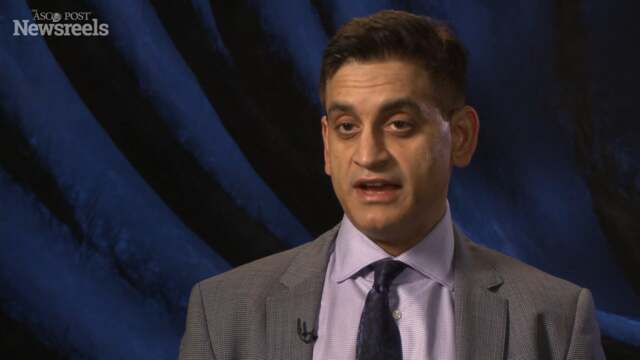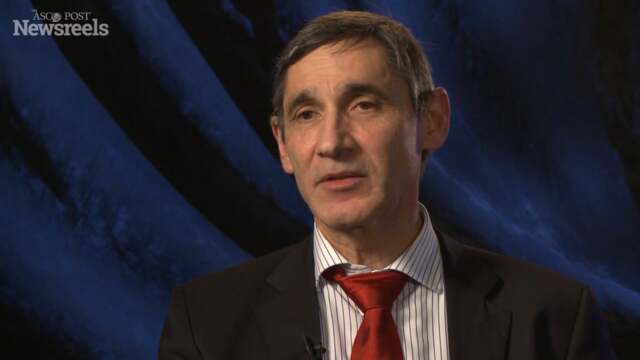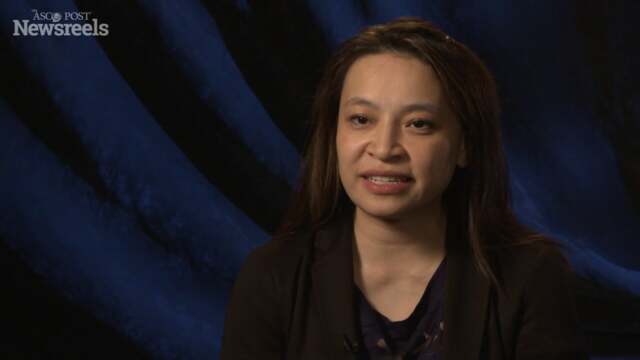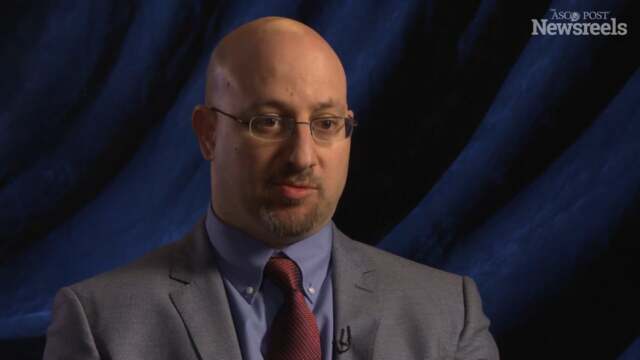Heinz-Josef Lenz, MD, on Metastatic Colorectal Cancer: Results of the MAVERICC Study
2016 Gastrointestinal Cancers Symposium
Heinz-Josef Lenz, MD, of the USC Norris Comprehensive Cancer Center, discusses the findings of this phase II study of mFOLFOX6/bevacizumab vs FOLFIRI/bevacizumab with biomarker stratification in patients with metastatic colorectal cancer (Abstract 493). To view the German language version of this newsreel, click here.
Simron Singh, MD
Simron Singh, MD, of the Toronto Sunnybrook Cancer Centre, discusses an analysis of data from this phase III study on the efficacy and safety of everolimus in advanced, progressive, nonfunctional neuroendocrine tumors of the GI tract and unknown primary (Abstract 315).
Eric Francois, MD
Eric Francois, MD, of the Centre Antoine-Lacassagne, discusses the 5-year follow-up results from this phase III study of neoadjuvant treatment in rectal cancer (Abstract 490). To view the French language version of this newsreel, click here.
Dung T. Le, MD
Dung T. Le, MD, from Johns Hopkins University Sidney Kimmel Comprehensive Cancer Center, reports findings on this agent, which showed promising activity in patients with previously treated progressive, advanced cancer (Abstract 195).
Daniel G. Haller, MD
Daniel G. Haller, MD, of the Abramson Cancer Center, discusses emerging global approaches to these diseases, emphasizing the studies that allow physicians to individualize treatments.
Jonathan R. Strosberg, MD
Jonathan R. Strosberg, MD, of H. Lee Moffitt Cancer Center and Research Institute, discusses progression-free survival, radiographic response, and preliminary overall survival findings of this phase III study on midgut neuroendocrine tumors treated with lutetium Lu-177 dotatate (Abstract 194).





